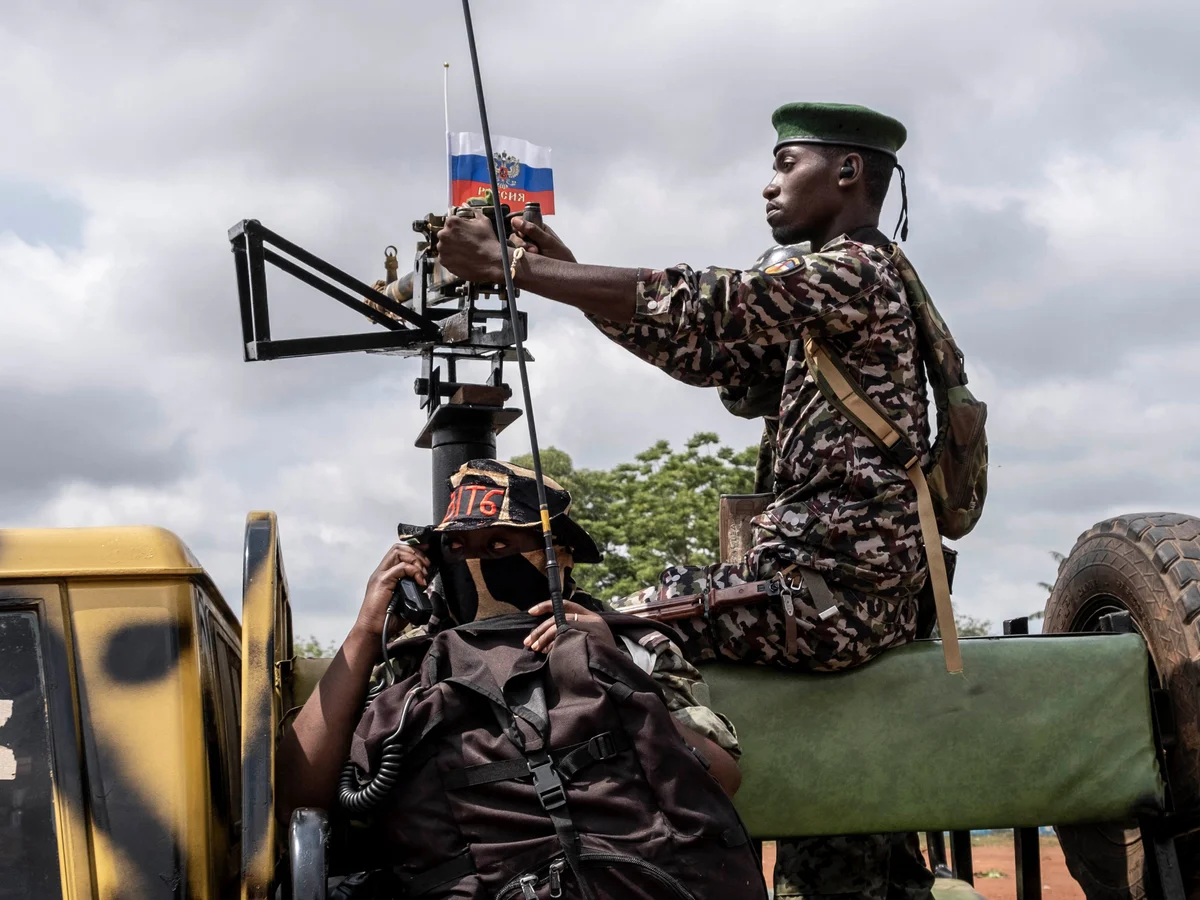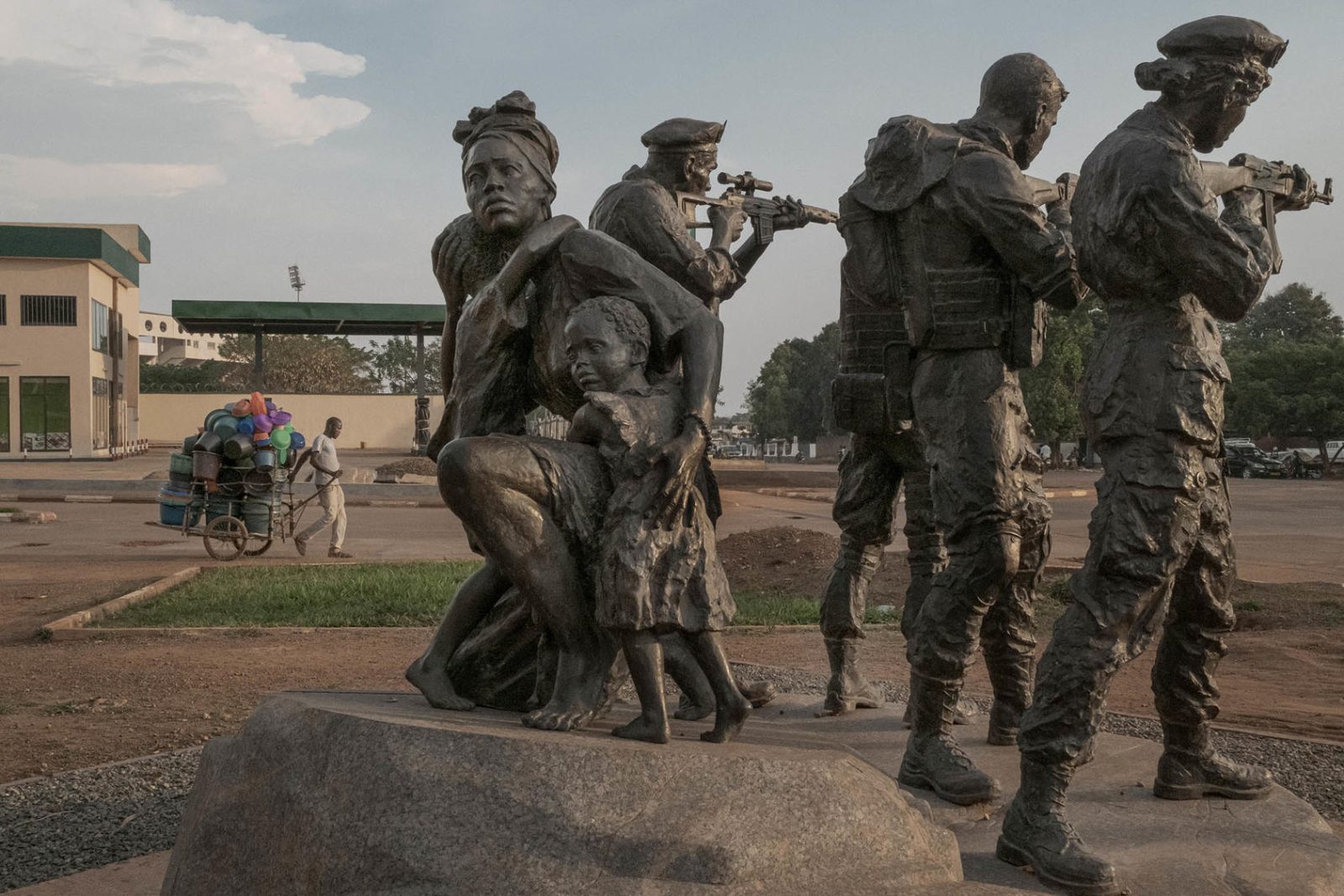The recent failed mutiny in Russia by the Wagner mercenary group is expected to have significant consequences for Africa, where Wagner maintains several thousand fighters and holds valuable business interests.
It remains uncertain whether Wagner’s leader, Yevgeny Prigozhin, who has been instructed to relocate to Belarus, will continue to manage his private army from there to fulfill its security contracts in countries such as the Central African Republic (CAR) and Mali.
On Monday, Russian Foreign Minister Sergei Lavrov assured the CAR and Mali that their critical security arrangements would remain unchanged.
Wagner’s presence in Africa is primarily driven by financial motives. With tacit approval from the Kremlin, Wagner’s operations also serve to enhance Russia’s diplomatic and economic influence.
For instance, Wagner’s involvement in Mali after France withdrew its forces in 2021 significantly benefited Russia, as it supported the new military junta in its fight against Islamist militants.
Wagner’s operational history in Africa began in 2018, when it sent “military instructors” to the CAR and Sudan, and subsequently expanded to Libya the following year. These countries have valuable natural resources that are of interest to Prigozhin’s organization.
The CAR, which has experienced instability for decades, is rich in diamonds, gold, oil, and uranium. Wagner has provided support to President Faustin-Archange Touadéra, who even employs Wagner mercenaries as his bodyguards.
This support has allowed Touadéra to resist French influence while fighting rebel groups, in exchange for access to the country’s resources.
Julia Stanyard from the Global Initiative against Transnational Organized Crime highlighted Wagner’s strategy over the past two to three years of expanding its military and economic presence in Africa.
Wagner’s affiliated companies have engaged in commercial activities such as trading in conflict minerals and timber, as well as producing beer and vodka.
In Sudan, Wagner’s brief involvement facilitated the establishment of M Invest, a Russian mining firm allegedly controlled by Prigozhin. Its subsidiary, Meroe Gold, is among Africa’s largest gold producers.
In Libya, Wagner’s presence has diminished since its support of renegade General Khalifa Haftar’s attempt to capture Tripoli nearly four years ago.
However, Libya remains strategically important for Russia, strengthening its influence in the Mediterranean and aligning with the Kremlin’s support for Haftar.
Wagner mercenaries continue to guard key oil facilities in Haftar’s strongholds, and sources have indicated no significant changes since the mutiny.

Wagner’s interest in Mali is likely tied to its gold reserves, although there is currently no evidence of Wagner’s firms operating there. The group’s presence could also enhance Russia’s influence in West Africa, where countries are under pressure from Islamist groups.
Wagner fighters have faced accusations of serious human rights abuses across several countries. An investigation in 2021 linked Wagner to civilian executions and unlawful use of anti-personnel mines in Libya.
In Mali, data from the Armed Conflict Location and Event Data Project (Acled) shows a sharp increase in militant violence from 2021 to 2022, with civilians being the primary victims.
Notably, a week-long operation in the town of Moura led to the deaths of around 500 civilians, with the UN and US sanctions linking the killings to foreign forces and Wagner.
The US Treasury has accused Wagner of engaging in ongoing serious criminal activities, including mass executions, rape, child abductions, and physical abuse in the CAR and Mali.
Despite this, Wagner’s success in combating rebels in the CAR has garnered local support, bolstered by Prigozhin’s local troll farms that promote anti-Western sentiment.
In Mali, the junta has requested the UN peacekeeping force’s departure, aligning with a social media campaign advocating for Russian troops. Prigozhin has publicly claimed that Wagner mercenaries are more effective than UN peacekeepers.
Analysts suggest that while Wagner has been instrumental for Russia in Africa, especially amid the Ukraine conflict, the group’s deep ties to the Kremlin make disentangling them from the continent a complex challenge.
In Libya, Wagner’s operations heavily rely on support from the Russian defense ministry. A UN diplomatic source has indicated that if Wagner were disbanded, its units in Africa would cease receiving Russian supplies.
Currently, Wagner’s fighters in Africa are paid by a Prigozhin holding company, which raises questions about their future, especially with Lavrov’s recent assurances to the CAR and Mali.
If these fighters are left unpaid and without political or military backing, they might become mercenaries for hire in conflict zones.
Russian President Vladimir Putin has suggested that Wagner fighters either join the regular army, return home, or relocate to Belarus.
However, Stanyard proposes that a compromise might be reached, allowing Prigozhin to maintain control of Wagner’s African operations from Belarus.
The future of Wagner’s business ventures in Africa remains uncertain. The African-based troll farms, which went silent during the mutiny, have continued to support the Kremlin’s narrative, hinting at a potential ongoing alliance between Putin and Prigozhin in Africa.







Leave a Reply